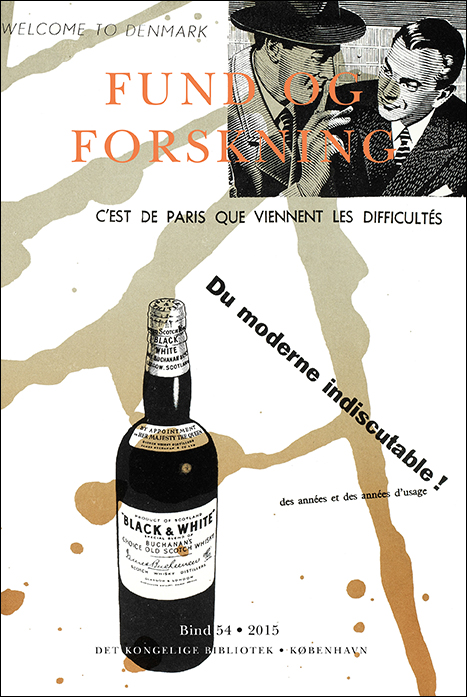Vestlig journalistik i Østblokken under den kolde krig. Temaer, tilgange, teser
DOI:
https://doi.org/10.7146/fof.v54i0.118907Resumé
Bent Boel: Western Journalism and Soviet Bloc Dissidents During the Cold War: Themes, Approaches, Theses
The role of journalism in international relations is a field which increasingly is attracting scholars’ attention. Cold War history is no exception in that regard. This article tries to identify themes, approaches and theses in the emerging literature dealing with Western journalists’ role in the Soviet Bloc during the Cold War. It more particularly discusses an issue which figures prominently in the new scholarship, namely the relationship between Western journalists and Soviet Bloc dissidents. Reflecting the bias of the literature, most examples draw on the Soviet case. The bulk of the literature on Cold War journalism discusses American (subsidiarily British) journalists in the Soviet Union and West German journalists in either the USSR or the GDR. As is shown in the article, a number of recent publications have contributed to our understanding of Western journalism in the Soviet Union and the GDR. They have, among other things, thrown new light on the working conditions of the journalists, their role as political actors, and in particular their relationship with Soviet Bloc dissidents. However, it also seems clear that we need substantially more research before we can draw firmer conclusions concerning these themes. An illustrative example could be the relationship between journalists and dissidents. One thesis developed in the new literature is that Western journalists developed a close relationship with Soviet dissidents in the late 1960s and early 1970s. To the extent that this is correct, it is an important finding, which to some degree relativizes the much celebrated impact of the so-called Helsinki process. However, it raises a number of questions. In particular, a number of contemporary testimonies point to a less homogeneous view of the Moscow correspondents: their reactions to the dissidents differed considerably and, presumably, so did their newspapers reports. And there are rather conflicting views on the attitudes of different groups of journalists. Such issues certainly deserve further investigation. In addition, a major problem with the existing literature is that it overwhelmingly focuses on the Soviet Union while ignoring other Soviet Bloc countries. Apart from the special case of West German journalism in the GDR, very little has been written about Western Journalism in Eastern Europe during the Cold War. Still another lacuna is the analysis of the journalistic output and its reception. While there are studies of media coverage of specific issues, more thorough and larger studies are required if we are to understand the possible impact of the media on international relations in this period, including, as some claim, on the ending of the Cold War.


